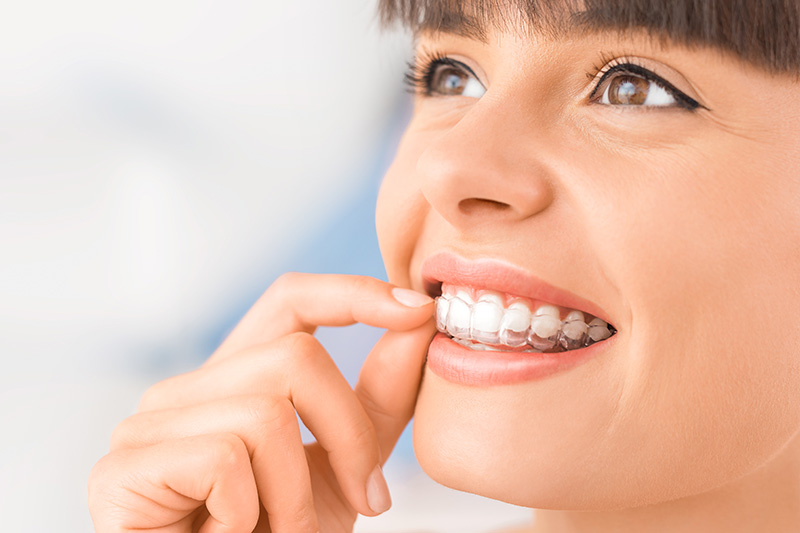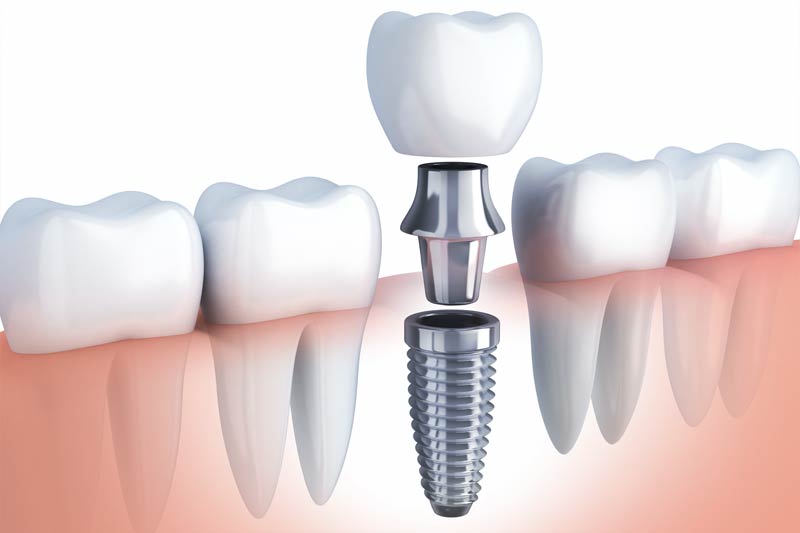Alleviate Jaw Pain With Dr. George Kreisheh
If you’re suffering from pain related to TMJ disorders, you’re not alone. An estimated five to 12 percent of adults are affected by these conditions. When this joint and the surrounding muscles become tense and irritated, it can lead to intense pain and difficulty chewing or opening your mouth. The good news is you can find relief from TMJ disorders with proper diagnosis and treatment from an experienced dentist like Dr. George Kreisheh. At Charm City Smiles in Lutherville, MD, our team understands the discomfort associated with TMJ disorders, and we’re here to help you restore strength and alleviate pain.
What Are TMJ Disorders?
TMJ stands for temporomandibular joint — the hinge that connects your jaw to your skull. Temporomandibular joint disorder, or TMD, can lead to a range of discomforts, including jaw pain, headaches, and difficulty chewing. At Charm City Smiles, Dr. Kreisheh has specialized training and experience in diagnosing and treating TMJ, tailoring solutions to each patient.
The symptoms of TMD can include:
- Jaw pain or soreness, especially when chewing or opening your mouth wide
- Clicking, popping, or grinding noises when moving your jaw
- Locking of the jaw, making it difficult to open or close your mouth
- Headaches or earaches, sometimes with dizziness
- Neck, shoulder, and back pain
- Tooth sensitivity not explained by dental problems
- Changes to your bite and how your teeth fit together
What Causes TMJ Pain?
There are several possible causes of TMJ disorders, including:
- Injuries To the Jaw, Face, or Neck: A blow to the jaw, whiplash, or dental procedures can damage the TMJ.
- Grinding or Clenching Teeth: Bruxism puts excessive pressure on the TMJ.
- Arthritis: Osteoarthritis or rheumatoid arthritis can affect the TMJ.
- Stress and Anxiety: These can lead to jaw clenching and teeth grinding.
- Structural Joint Problems: Issues like disk displacement or skeletal misalignment can impair function.
TMJ Treatments at Charm City Smiles
Nightguards
An occlusal orthotic device, more commonly known as a nightguard, is a custom, mouthguard-like appliance that sits over the teeth at night. It covers the upper and lower arches and has a precise fit and thickness tailored to each patient’s bite. The orthotic helps alleviate pressure on the TMJ by promoting proper jaw positioning and providing a physical barrier between the upper and lower teeth to prevent grinding and clenching. Wearing the appliance allows the muscles to relax and gives the joint a rest from strain.Physical Therapy
Targeted physical therapy exercises can help strengthen the jaw and surrounding muscles that control jaw movement. The physical therapist will prescribe a customized set of gentle stretching, postural, and low-impact resistance training exercises patients can do at home. Building muscle strength and flexibility helps support proper TMJ function and alignment. Physical therapy also includes massage, hot and cold therapy, and electrostimulation for pain relief.Stress Management
Since psychological stress and teeth grinding or clenching play a major role in many TMJ disorders, stress management is a key component of treatment. Stress reduction curbs unconscious teeth grinding and clenching, which further aggravates joint and muscle pain. Our Lutherville dentist may recommend relaxation techniques such as deep breathing, meditation, yoga, or tai chi. Counseling may also help manage stress, anxiety, and other emotional issues contributing to TMJ problems.Orthodontic Treatment
Correcting bite misalignment through modern orthodontic solutions like Invisalign® clear aligners can significantly benefit TMJ issues caused by malocclusion. The orthodontic adjustment helps the upper and lower teeth fit together properly, which takes the pressure off the TMJ. It also retrains the jaw muscles to close in the correct position. Straightening misaligned teeth through orthodontic treatment is often essential for fully resolving TMJ problems caused by occlusal abnormalities.Dental Restorations
Well-designed bridges, crowns, fillings, and other dental restorations play an important preventative role. Replacing old, defective restorations with poor occlusion and restoring decayed or damaged teeth helps optimize the bite. Properly shaped restorations guide the teeth into the correct positions as they come together and avoid creating premature contacts that put harmful pressure on the TMJ. It’s critical dental work maintains the ideal occlusion.TMJ Diagnosis at Charm City Smiles
Getting an accurate TMJ disorder diagnosis is crucial for effective treatment. At Charm City Smiles, our Lutherville dentist uses advanced technology and procedures to evaluate TMJ issues, including:
- Medical and Dental History: It’s important for Dr. Kreisheh to understand your symptoms and health background.
- Clinical Examination: The dentist will check your jaw’s range of motion and function, test its reaction to palpation, and look for alignment issues.
- Imaging: X-rays, CT scans, or MRIs can reveal bone structure, disk position, and arthritis issues.
- Intra-Oral Examination: The dentist will examine your teeth, muscles, bite, fillings, and more up close.
- Impressions: Study models of your teeth provide insight into bite problems.
a man smiles confidently at the dentist after alleviating jaw pain through tmj treatment
Frequently Asked Questions
Can kids and teens develop TMJ disorders?
Yes, TMJ disorders can occur in young people, often due to teeth misalignment, jaw trauma, teeth grinding, or structural abnormalities. It’s important to get prompt treatment, as poorly managed TMJ issues in childhood can lead to impaired jaw growth and function. An orthodontist can often correct children’s TMJ disorders.Can TMJ disorders be cured completely?
For many patients, a combination of conservative at-home therapies and clinical treatments can effectively cure or manage TMJ disorders. However, some long-standing or severe cases involving degenerative joint damage may not be fully curable. But even then, targeted treatment can still provide substantial pain relief.How can I relieve TMJ pain at home?
There are several remedies you can try at home to help manage TMJ pain:Does poor bite alignment cause TMJ disorders
Yes. Misaligned teeth and poor bite function (malocclusion) are common causes of TMJ disorders. When the upper and lower teeth don’t fit together properly, it strains the jaw joint and muscles. Orthodontic treatment to correct bite alignment is often an important part of resolving TMJ issues.Get Relief from TMJ Disorders at Charm City Smiles
If you suffer from debilitating TMJ symptoms like jaw pain and headaches, Dr. Kreisheh at Charm City Smiles is here to help. With advanced diagnostic technology and proven treatment options like bite correction and oral appliances, significant relief is within your reach.
To schedule a consultation with Dr. Kreisheh and get started on your journey to a pain-free, properly functioning jaw, call Charm City Smiles in Lutherville, MD, today at 410-913-5700 . You can smile and chew with comfort again. We look forward to meeting new and returning patients from Lutherville and its surrounding areas, such as Timonium, Towson, and Riderwood, MD.


